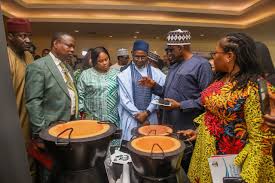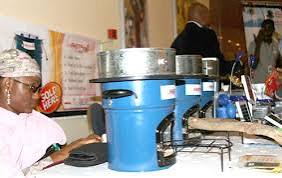The Federal Government of Nigeria has called on all citizens to adopt clean cooking technologies as part of its Renewed Hope Agenda to enhance public health and minimize the adverse effects of climate change associated with the use of firewood and charcoal for cooking. The call to action was made during the National Clean Cooking Fair held in Abuja, where the government emphasized the critical role of clean cooking in addressing environmental challenges, improving public health, and promoting sustainable development.

Traditional open-fire cooking, prevalent in many Nigerian households, has been identified as a significant contributor to household air pollution, leading to respiratory diseases, particularly among women and children. The World Health Organization (WHO) estimates that over 77,000 deaths occur annually in Nigeria due to lung and heart diseases caused by household air pollution from solid fuels. Additionally, traditional cooking methods have been linked to vision impairment, low birth weight, and increased risks of gender-based violence, snake bites, and other physical injuries. Furthermore, the reliance on firewood for cooking has been a major driver of deforestation in the country, resulting in the loss of nearly 400,000 hectares of forest annually.
Recognizing the multifaceted impact of traditional cooking methods, the Federal Executive Council (FEC) has approved the implementation of the National Clean Cooking Policy (NCCP) to promote the adoption of clean cooking technologies. The Ministry of Environment, in collaboration with the Nigeria Clean Cooking Alliance, is working to reduce greenhouse gas emissions in line with Nigeria’s commitment to the United Nations Framework Convention on Climate Change (UNFCCC) to become a net-zero economy by 2060.
The implementation of the NCCP is expected to involve the manufacturing and distribution of subsidized clean cooking stoves, creating employment opportunities and stimulating local economies. The government has also established a committee to provide a comprehensive roadmap for the implementation and achievement of the NCCP, emphasizing the need for awareness campaigns to educate citizens about the health and environmental benefits of transitioning to cleaner cooking technologies.
The National Clean Cooking Fair, which served as a platform to kick off activities related to the implementation of the NCCP, highlighted the government’s commitment to promoting sustainable and clean cooking practices. The event underscored the shared commitment of the government and key stakeholders to sustainable development, environmental stewardship, and improving the quality of life for millions of Nigerians.
The government’s emphasis on clean cooking aligns with global efforts to address climate change and promote sustainable development. By transitioning to cleaner and more efficient cooking technologies, Nigeria aims to improve air quality, protect public health, and mitigate the impacts of climate change in communities across the country.
The government’s push for clean cooking technologies reflects a broader global trend towards sustainable energy and environmental conservation. As Nigeria continues to pursue its climate resilience and sustainability goals, the adoption of clean cooking technologies is poised to play a pivotal role in achieving a cleaner and more sustainable future for the nation.




